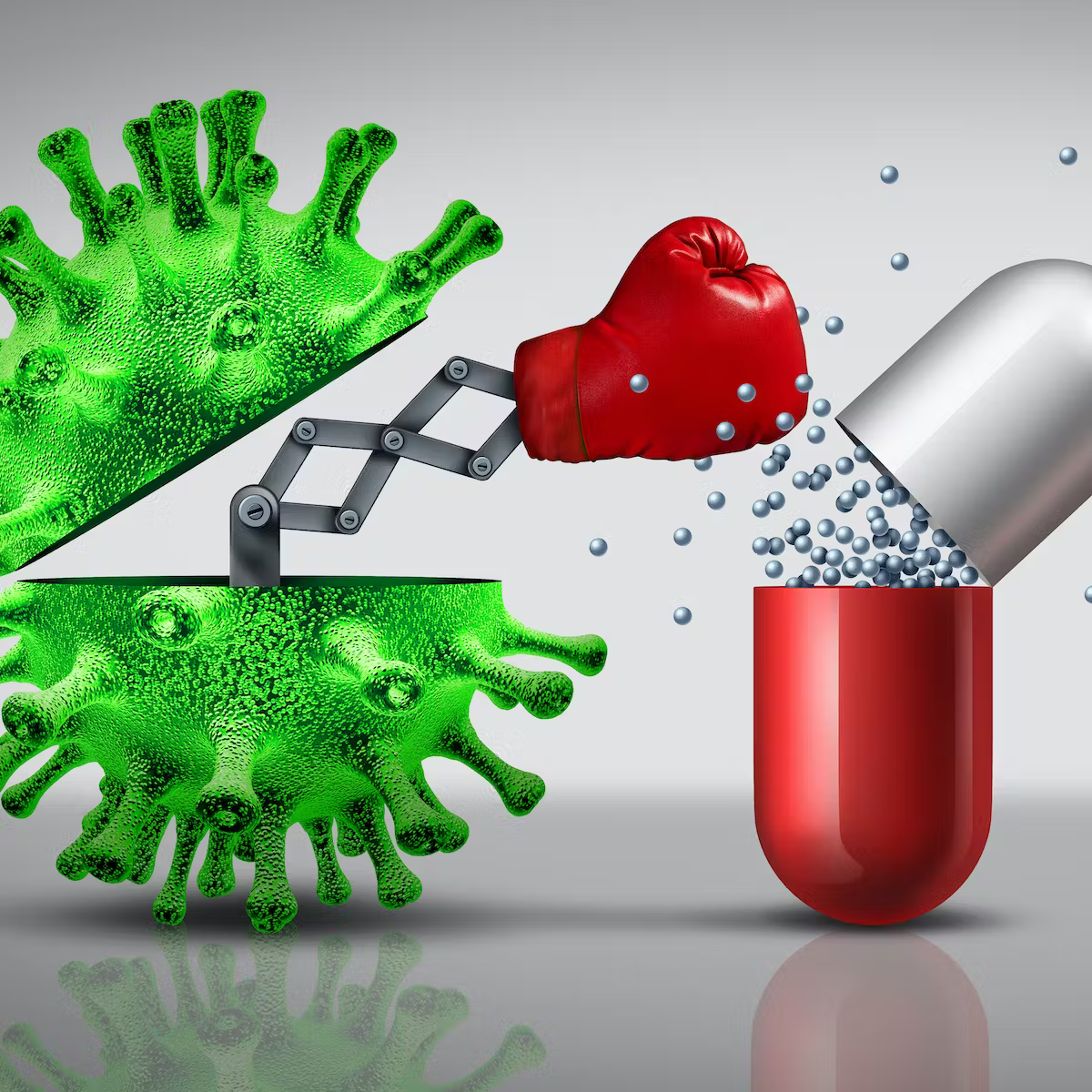A team of researchers recently published a report on a drug that significantly reduces the ability of bacteria to evolve antibiotic resistance, both in laboratory cultures and in live animal models. This drug inhibits activation of the stress response in a common gut bacteria, Escherichia coli, E. coli, which creates new mutations as it repairs breaks in bacterial DNA. These stress response mutations not only confer resistance to antibiotics, but can also create new mutations that create resistance to antibiotics that have never been encountered before. Thus, blocking this stress response may prolong antibiotic effectiveness.
“Most people with bacterial infections get better after completing antibiotic treatment, but there are also many cases in which people decline because the bacteria develop resistance to the antibiotic, which then can no longer kill the bacteria,” senior author Susan Rosenberg, who is the Ben F. Love Chair in Cancer Research and professor of molecular and human genetics, of biochemistry and molecular biology, and of molecular virology and microbiology at Baylor University said in a statement.
To do this study, Professor Rosenberg and collaborators screened 1,120 drugs approved in the United States and in the European Union for human use, seeking those that could prevent or slow the evolution of antibiotic resistance in E coli when these bacteria were exposed to a third antibiotic, ciprofloxacin (cipro). Previous studies have found that stress responses in bacteria can be initiated by low concentrations of cipro that occur at the beginning and end of a course of antibiotic treatment, or when antibiotic doses are missed.
Cipro is the second most prescribed antibiotic in the United States. Professor Rosenberg’s research groups, and many outside labs as well, previously found that bacterial cultures exposed to cipro showed increased rates of genetic mutations. This is because cipro stresses bacteria by creating breaks in bacterial DNA. These DNA breaks accumulate and trigger a genetic stress response to repair them.
“We found that DEQ fulfilled both requirements,” lead author Yin Zhai, a postdoctoral associate in the Rosenberg lab said in a statement. “Given together with cipro, DEQ reduced the development of mutations that confer antibiotic resistance, both in laboratory cultures and in animal models of infection, and bacteria did not develop resistance to DEQ.”
This is really good news since so many antibiotics are rendered ineffective almost as soon as they are available for use, even for infections that have never before seen these new antibiotics.
“In addition, we achieved this mutation-slowing effect at low DEQ concentrations, which is promising for patients,” Dr Zhai pointed out. “Future clinical trials are needed to evaluate the ability of DEQ to decelerate bacterial antibiotic resistance in patients.”
Source:
Yin Zhai, John P. Pribis, SeanW. Dooling, Libertad Garcia-Villada, P.J. Minnick, Jun Xia, Jingjing Liu, Qian Mei, Devon M. Fitzgerald, Christophe Herman, P.J. Hastings, Mauro Costa-Mattioli and Susan M. Rosenberg (2023). Drugging evolution of antibiotic resistance at a regulatory network hub, Science Advances, 9(25) | doi:10.1126/sciadv.adg0188




0Comments